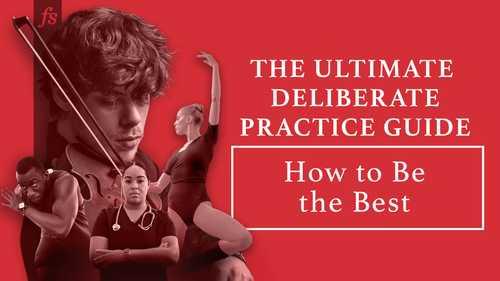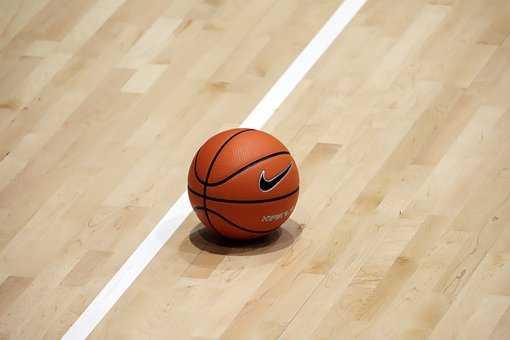The Ultimate Deliberate Practice Guide: How to Be the Best
Curated from: fs.blog
Ideas, facts & insights covering these topics:
14 ideas
·36.6K reads
243
3
Explore the World's Best Ideas
Join today and uncover 100+ curated journeys from 50+ topics. Unlock access to our mobile app with extensive features.
Defining deliberate practice
The term "deliberate practice" is mostly attributed to Karl Anders Ericsson, an influential figure in the field of performance psychology. Deliberate practice turns amateurs into professionals. It creates top performers in any field.
Doing something regularly but mindlessly is not the same as practicing it. Deliberate practice means repeatedly performing a set of activities with the intention of improving the specific skill.
942
5.85K reads
Deliberate practice aims at constant progress
While engaging in deliberate practise, we are always looking for errors or areas of weakness. Once we identify it, we establish a plan for improving it. If one approach does not work, we keep trying new ones until it does.
In using deliberate practice, we can overcome many limitations we might see as fixed. We can go further than we ever thought possible.
838
3.86K reads
Fields where we can improve performance
Deliberate practice is a universal technique employed in any area you're trying to be the best at or get a little bit better at.
For example, competitive fields with clear measurements such as music, dance football, horse riding, swimming, or chess. But we can also improve performance in fields such as teaching, nursing, surgery, therapy, programming, trading, writing, decision-making, leadership, studying, and communication.
773
3.33K reads
Deliberate practice is structured and methodical
Our nature is to choose the easiest thing. When we practice something a lot, we develop habits that make the task almost effortless. While it may be helpful, it can interfere with our improvement.
Deliberate practice means finding the weak areas that impact your overall performance and then target those.
- Break the skill you want to improve into the smallest possible parts.
- Then work through them in a logical order, starting with the fundamentals.
- Put your practice sessions on your calendar.
882
2.73K reads
Deliberate practice is challenging and uncomfortable
Most often, deliberate practice is repeated frustration and failure. Similar to a baby learning to walk, we will often fall for every step we take. That is the point. Since deliberate practice targets our weakest areas, it means doing the stuff we're not good at. We will get frustrated.
Set a short, ambitious goal once a month, not impossible, then challenge yourself to it.
855
2.5K reads
Deliberate practice requires rest and recovery time
Deliberate practice is very challenging and impossible to do all day long. At the high end, top practitioners rarely spend more than three to five hours per day on deliberate practice. More hours often result in diminishing returns. One hour per day is enough for substantial improvements, especially when it's consistently done over a long period.
Enough rest and recovery are vital. During deliberate practice, we need to switch to relaxing activities to feel refreshed.
823
2.26K reads
Deliberate practice involves constant feedback and measurement
Practicing something without knowing if you are getting better is pointless.
- Identify the most important metrics related to performance. Keep a record of them each time you practice.
- Be careful of vanity metrics. For example, if you use deliberate practice to improve email marketing skills to get more customers for your business. An increase in email subscribers is a vanity metric; the number of paying customers is a useful metric.
803
1.97K reads
Deliberate practice: Using a coach or teacher
Deliberate practice is most effective when used with a coach some of the time to give feedback, point out problems, suggest techniques for improvement, and provide vital motivation.
A coach can see your performance from a different perspective. If you don't have access to a coach, built the skill of metacognition (knowledge about your own knowledge), where it becomes possible to coach yourself systematically.
786
1.7K reads
"…A critical part of self-evaluation is deciding what caused those errors. Average performers believe their errors were caused by factors outside their control: my opponent got lucky; the task was too hard; I just don’t have the natural ability for this. Top performers, by contrast, believe they are responsible for their errors."
GEOFF COLVIN
810
3.1K reads
Deliberate practice requires intrinsic motivation
Persisting with deliberate practice needs a lot of motivation. However, the motivation needs to come from within, not from external rewards or to avoid a negative consequence. We need to enjoy getting better for its own sake.
- Make a list of reasons you want to work on a skill and the benefits you've experienced.
- Keep a "motivation diary" for one week, scoring your motivation level every fifteen minutes during each pratice session.
- Find a cheerleader to help sustain motivation.
808
1.64K reads
Deliberate practice takes time
- Deliberate practice tends to fast track progress, but truly mastering a skill is a lifelong process.
- There are no examples of people labelled as prodigies that did not put in enormous amounts of deliberate practice.
- Creative genius tends to come after ten years of studying relevant knowledge and developing skills, research found.
- Those who eventually gain recognition produce an enormous quantity of less remarkable work.
788
1.91K reads
Deliberate practice requires your full attention
The deeper we focus during deliberate practice sessions, the more we get out of them.
- If you can pay your full attention for only five minutes in practice, then take a break every five minutes. Increase your focus time as you get better.
- Figure out which practice activities have the biggest potential to increase your performance. Plan to do them first before considering activities that offer marginal gains.
793
1.87K reads
Deliberate practice leverages the spacing effect
The spacing effect refers to how we can better remember information if we learn them in multiple sessions with increasingly longer intervals between them. It is nearly impossible to practice something once and expect it to stick.
Every time you're learning a new part of a skill, make a schedule for when you'll review it. Typically, it involves going over information after an hour, then a day, then every other day, then weekly, then fortnightly, then monthly, then every six months, then yearly.
793
1.84K reads
Limitations of deliberate practice
Deliberate practice is more complex and nuanced than we like to believe.
- Deliberate practice is necessary but insufficient. Once you reach a high level for any skill, everyone at that level is engaging in a lot of deliberate practice. Then more luck and randomness, innate talents or physical advantages matter.
- Practitioners miss out on other parts of life as they devote most of their time to practice.
- Sometimes, we can practice past the point where it serves us. We need to know when to pivot.
765
2.07K reads
IDEAS CURATED BY
Jack 's ideas are part of this journey:
Learn more about personaldevelopment with this collection
Understanding the psychological rewards of bad habits
Creating new habits to replace old ones
Developing self-discipline
Related collections
Similar ideas
3 ideas
The Complete Beginner's Guide to Deliberate Practice
njlifehacks.com
7 ideas
The Beginner's Guide to Deliberate Practice
jamesclear.com
5 ideas
Build Better Habits that Actually Stick (with Creative Deliberate Practice)
theproductiveyou.com
Read & Learn
20x Faster
without
deepstash
with
deepstash
with
deepstash
Personalized microlearning
—
100+ Learning Journeys
—
Access to 200,000+ ideas
—
Access to the mobile app
—
Unlimited idea saving
—
—
Unlimited history
—
—
Unlimited listening to ideas
—
—
Downloading & offline access
—
—
Supercharge your mind with one idea per day
Enter your email and spend 1 minute every day to learn something new.
I agree to receive email updates


